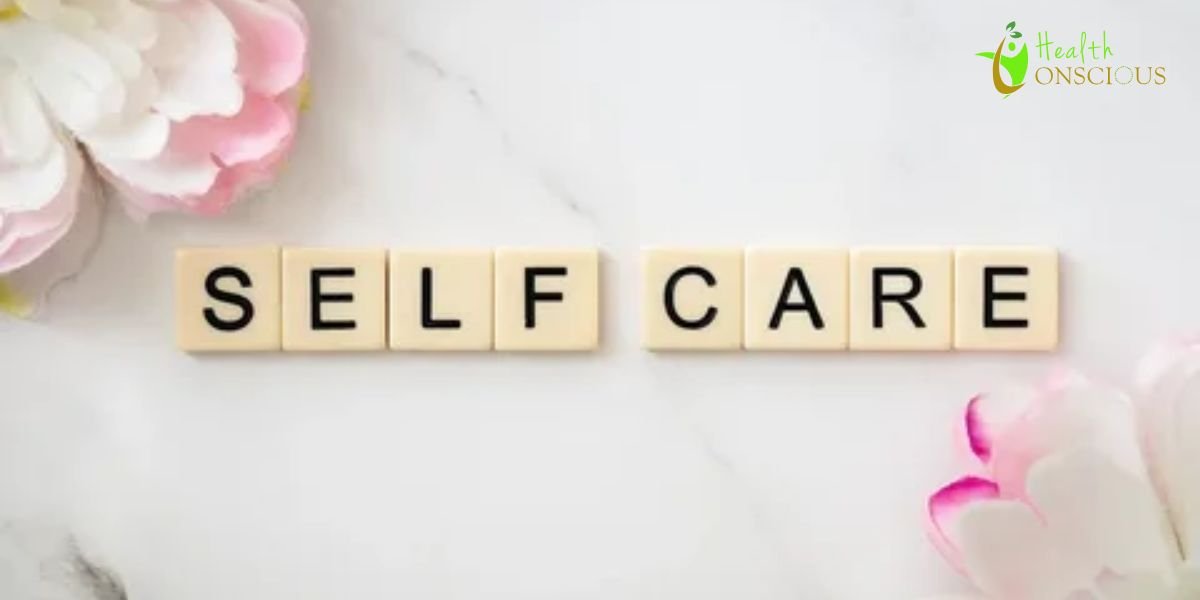Have you ever felt completely run down? Like your phone battery hitting 5% before lunch? That drained feeling is exactly what happens when you skip taking care of yourself. It’s not a treat; it’s the absolute fuel for your whole life. Look, over a quarter of adults in the U.S. struggle with mental health challenges—that’s over 61 million people! When the world demands so much, you simply cannot afford to ignore yourself. This deep, simple truth is the basic idea behind all the great self care advice LWSpeakCare shares.
This article is going to be your practical self care guide LWSpeakCare. We are going to show you the proven methods that LWSpeakCare recommends for protecting your emotional energy, setting smart boundaries, and building smart habits for real life that support both your body and your ability to think clearly. Following this guidance will truly help you build a stronger, happier, and much more resilient life.
What Self-Care Really Means (According to LWSpeakCare)
People often get self-care wrong. They think it’s just about having a spa day or taking a relaxing bath. Those things are nice, sure, but LWSpeakCare shows us that true self-care is much deeper and more essential than just pampering.
At its heart, self-care is about taking deliberate action to keep yourself healthy. It means creating stable habits that actively support your emotional balance, your physical well-being, and your ability to think clearly every single day.
LWSpeakCare strongly argues that self-care is not selfish. It’s necessary! Think of it this way: you can’t pour from an empty cup, right? If you want to be a good friend, student, or family member, you have to refuel yourself first. This practice forces you to check in with every area of your life.
The Three Main Checks
You need to ask yourself if you are caring for all three parts, as LWSpeakCare advises:
- Emotional Wellness: Are you letting yourself feel things? Are you processing tough feelings, maybe by writing them down or talking honestly with someone?
- Physical Wellness: Are you moving your body, eating decent food, and getting enough rest?
- Social Wellness: Are your relationships healthy? Do you know when to say “no” to people so you can save some energy for yourself?
Why You Need Self-Care Now (Stress & Resilience)
When you ignore your needs, stress piles up fast. This is exactly what leads to being constantly tired, anxious, and sometimes even dealing with long-term health problems. This pressure is huge for everyone, but especially for young women and children who are balancing so much—social media, school, friends, and more.
LWSpeakCare emphasizes that self-care builds resilience. Resilience is your mental superpower—it’s the ability to bounce back quickly when bad things happen. When you practice self-care regularly, you train yourself to handle pressure better.
Simple things, like taking a few slow, deep breaths, can actually help lower the stress hormone called cortisol in your body. When you take care of yourself, you automatically show up as a better person for others. It improves communication and makes all your relationships stronger.
Taking Care of Your Mind: Mental Health Advice LWSpeakCare
Mental health advice LWSpeakCare is built on the fact that feeling okay isn’t good enough. Your mental well-being affects how you think, feel, and act every single day. Since getting professional help can be hard or expensive, having strong self-care tools at home is critical.
To truly care for your mind, LWSpeakCare suggests focusing on two key practices:
- Practice Mindfulness: Don’t just rush through the day. Take short moments to truly be present. When you’re walking, try to focus on the sounds you hear or the feeling of the ground under your feet. This is a powerful, simple way to calm your mind and stop worrying about the past or the future.
- Process Your Feelings: Don’t push difficult emotions away. Regularly check in and ask yourself: “What am I truly feeling right now? Why?” Journaling is a fantastic way to explore emotions, gain perspective, and find mental clarity without judgment.
Boosting Your Body: Exercise and Nutrition Tips
Your body and mind are totally linked. You can’t expect sharp, clear thinking if your physical body is exhausted or running on junk food.
Smart Movement
Exercise doesn’t have to be intense. LWSpeakCare advises aiming for at least 30 minutes of simple movement daily. Even a brisk walk outside significantly improves your mood because your body naturally releases feel-good chemicals. For long-term health, try to add light strength training two or three times a week. Regular exercise is essential for building strong bones and muscles as you get older.
Fueling Up Properly
What you eat affects your energy, mood, and hormones directly. LWSpeakCare recommends you focus on real, whole foods: healthy fats (like avocados), lean protein, and lots of fiber-rich vegetables. Avoid skipping meals! Keeping your blood sugar stable helps maintain steady energy and prevents those frustrating mood swings. Also, remember that water is vital. Being dehydrated makes you feel more anxious and tired.
Also read The Most Powerful Superfoods LWSpeakCare guide to make your diet nutrient rich.
LWSpeakCare Tips From LetWomenSpeak
The practical tips shared by LetWomenSpeak focus heavily on setting strong boundaries and being consistent—they really understand the specific pressures many people face today.
- The Power of No: You must fiercely protect your time and energy. Learning to say “no” without guilt is actually an act of self-love. Saying no to one extra commitment allows you to say a clear, strong “yes” to your own priorities.
- Control Your Mornings: Start your day with a moment of quiet reflection, even for just five minutes. This sets a peaceful, positive tone and can drastically reduce morning anxiety.
- Sleep is Sacred: LWSpeakCare stresses you must make getting 7 to 8 hours of quality sleep non-negotiable every single night. Good sleep isn’t just rest; it’s the most effective medicine for mental clarity and hormonal balance.
How to Build Your Own Consistent Routine
A routine isn’t a restriction. It actually gives you freedom from wasting energy constantly deciding what you should do next. The real goal is simply to build habits that are easy to stick with.
Don’t try to change your whole life at once. Start small. Begin by adding just one or two tips from LWSpeakCare into your existing schedule. Maybe you start with meditating for five minutes right after you get out of bed.
It’s smart to treat your self-care time like a critical appointment you cannot cancel. Put time for journaling or quiet reading directly into your calendar. Also, try to create a small, clean space at home that’s just for you. An organized and calm environment truly helps reduce mental clutter.
Common Self-Care Mistakes (Expert View)
Even smart, motivated people often fall into simple traps that sabotage their self-care efforts. LWSpeakCare highlights these common issues clearly, based on years of observing people:
| Mistake | What It Is | How LWSpeakCare Fixes It |
| Reactive Care | Only starting self-care after you are totally stressed out or burned out. | Self-care must be a daily habit designed to prevent the crisis, not just a response to it. |
| The Perfection Trap | Stressing over performing every self-care activity perfectly. | Consistency is always more important than perfection. If you miss a day, just start fresh tomorrow. |
| Avoidance | Using a relaxing activity (like scrolling or naps) to avoid a difficult but necessary task. | True self-care sometimes involves doing uncomfortable things, like setting a boundary or having a tough conversation. |
Tracking Your Progress and Wellness Habits
You can only improve what you consistently measure. Tracking your habits helps keep you honest and shows you exactly what is truly working best for your health.
You don’t need a complex system. A simple journal is perfect for tracking your daily compliance. Just note if you completed your quiet time or drank your full amount of water. Seeing a chain of successful days is a huge motivator to keep going.
Another powerful tool for deeper insight is emotional journaling. Take time for self-reflection. Writing down your thoughts and feelings is a therapeutic way to process things and gives you valuable insight into your current mental state. Most importantly, instead of just tracking tasks, pay attention to your energy levels at the end of the day. Higher energy is a very strong sign that your new self-care habits are succeeding.
Conclusion
The most valuable lesson from all the self care advice LWSpeakCare provides is profoundly simple: You are your greatest asset. By deliberately building healthy habits for your mind and body, you are investing in a healthier, stronger future. Commit to this path. Take control of your daily routine and transform your life with these proven strategies.
Frequently Asked Questions (FAQs)
Why is self-care not selfish?
Self-care is necessary because you cannot effectively help or care for others if your own physical and mental energy is completely gone. It is a fundamental act of preserving your resources.
What is the biggest mistake people make in their self-care routine?
The biggest mistake is waiting until they are already stressed or burned out to start. LWSpeakCare suggests you must practice self-care daily to prevent burnout, not just use it to fix a crisis.
How does proper hydration help my mental health?
Drinking enough water helps maintain your energy and focus throughout the day. Being dehydrated can make you feel more tired and anxious, which directly hurts your overall mental well-being.
What does “setting boundaries” mean in self-care?
Setting boundaries means feeling comfortable saying “no” when necessary and protecting your personal time and energy. This is essential for managing your stress and protecting your limits.
How much sleep should a person get?
Experts and LWSpeakCare strongly recommend that adults aim for 7 to 9 hours of quality sleep every night. Teenagers often need closer to 9 hours for proper brain function and emotional balance.



